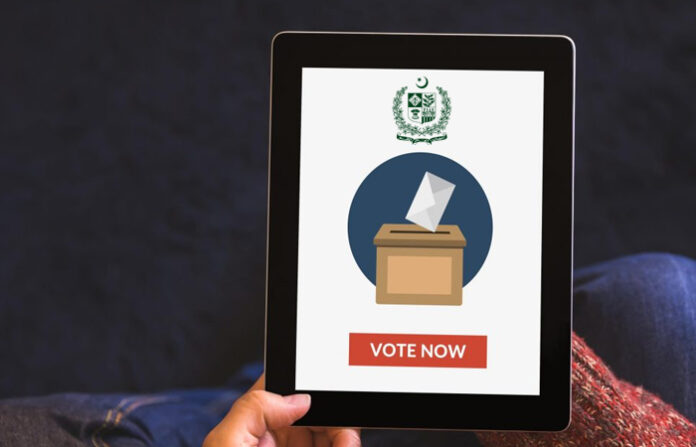The Ministry of Information Technology and Telecommunication (MoITT) has begun examining the processes and solutions for internet voting (i-Voting) to digitalize Pakistan’s electoral process.
To optimize user/voter participation by allowing them to vote from anywhere and allowing them access from various computer systems and devices that have an internet connection, the MoITT invited consultancies for the design, study, and implementation of internet voting for overseas Pakistanis.
MoITT aims to select well-established, experienced, and creative consultants to provide overseas Pakistanis with consultancy for the design, study, and implementation of internet voting.
On the basis of the information available and the guidelines of the Internet Voting Task Force (IVTF) and other publicly available documents, an Expression of Interest (EoI) was prepared.
The main aim of the document is to invite responses from interested consultants to participate in the upcoming electoral process for Pakistanis from overseas countries. Interested consultants may conduct their own study/analysis/investigation that is needed prior to the submission of their responses as part of their due diligence.
Technically and financially strong consultants have been invited to participate in this venture, which will also include the ministry to the extent of facilitating/sponsoring the project (with machinery/equipment/development/installation/functioning/operations, etc.).
The MoITT is in the process of using a competitive bidding process to choose the desired consultants.
Prequalified consultants will be allowed to participate in the subsequent Request for Proposal (RFP) based on the prequalification requirements specified in this document.
The goal is to evaluate the current i-Voting solutions/technologies along with the existing i-Voting system built by NADRA and propose internet voting solutions/recommendations to increase the participation of overseas Pakistanis by allowing them to vote from anywhere and by allowing them access from different computer systems and from any Internet-based device.
The process’s Terms of Reference (ToR) include:
- Conducting a thorough analysis of the different i-Voting solutions and methods used throughout the world;
- An analysis of the electoral processes and procedures on the Internet in Pakistan;
- An overview of the NADRA-developed i-Vote solution and the identification of its limitations and suggested improvements;
- The exercise of technological benchmarking by countries with identical voting procedures/procedures and the technologies used;
- Proposal for methodology, standards and best practices for the introduction or configuration of the overseas Pakistani i-Voting scheme, taking into account the recommendations of the IVTF;
- Provision of guidelines for ongoing changes to the existing methodology for internet voting;
- Proposal for procedures to ensure i-Voting process integrity;
- Proposal for solutions/mechanisms to retain audit trails without violating users’ anonymity;
- Proposal for solutions to protect the confidentiality of the ballot in i-Voting terms;
- Proposal for solutions/mechanisms to guarantee the security of solutions for i-Voting;
- An examination of different E2E solutions for internet voting;
- Proposal for a solution best suited to Pakistan, study of different solutions for block chain internet voting, and a proposal for a solution best suited to Pakistan; and
- Any additional ideas that add value to the desired mechanism/solution of i-Voting.


